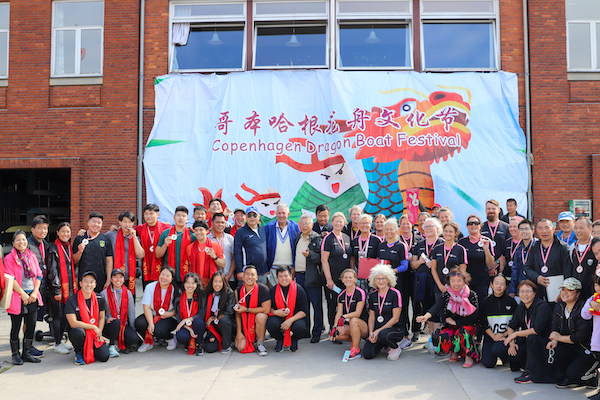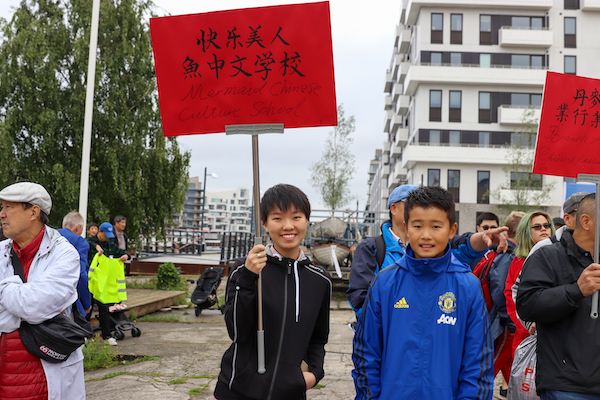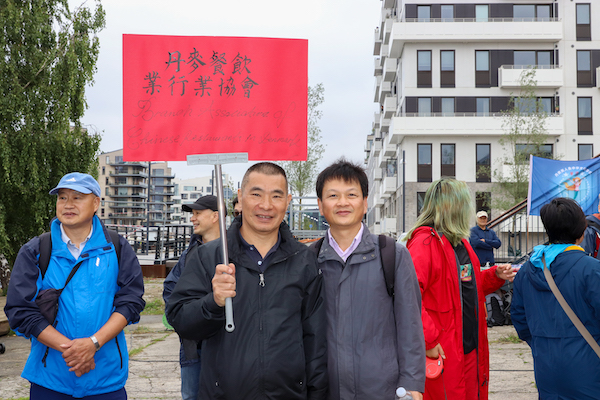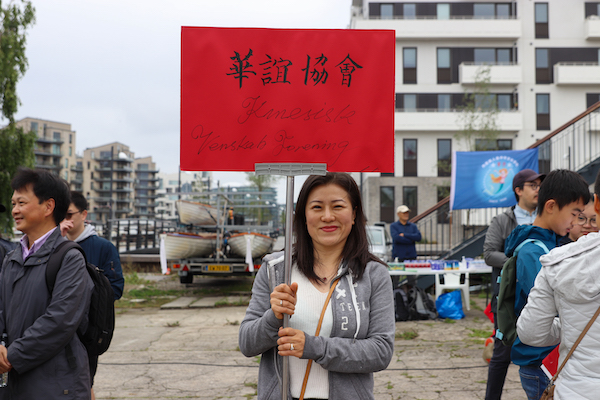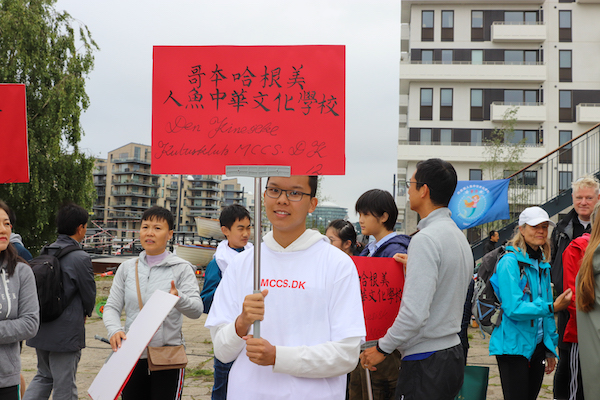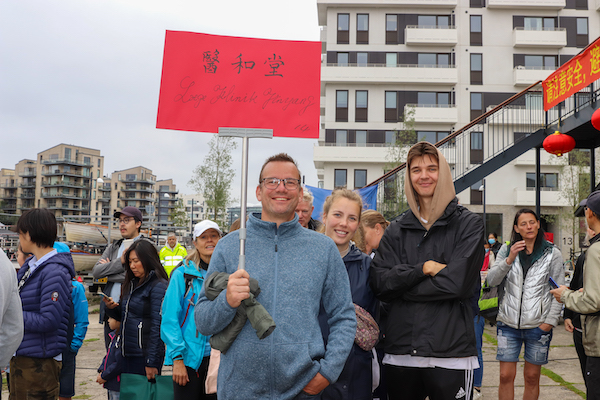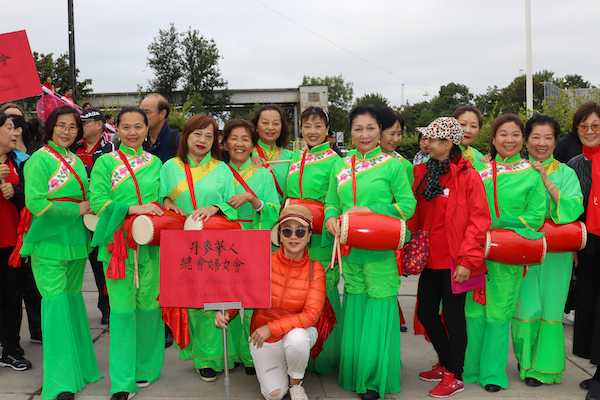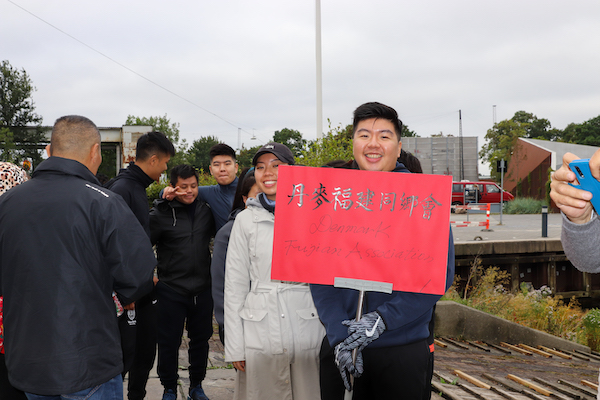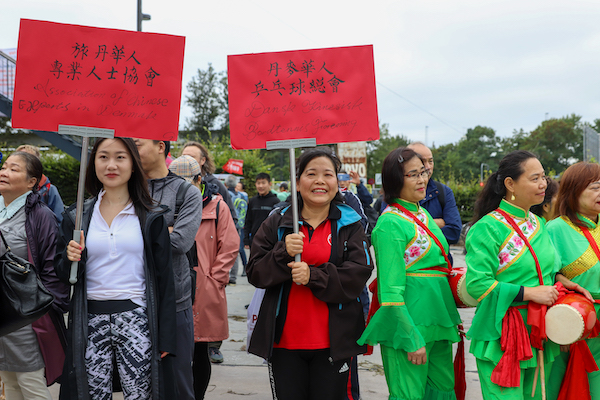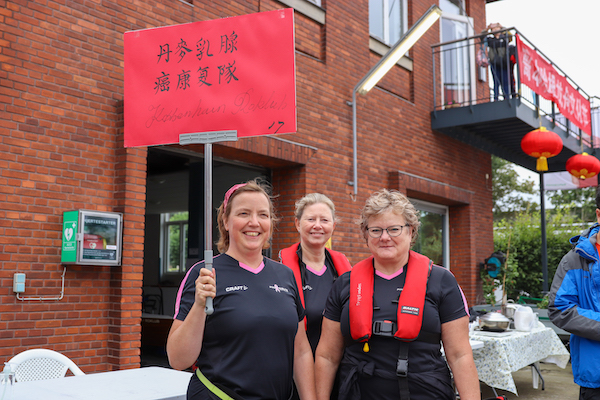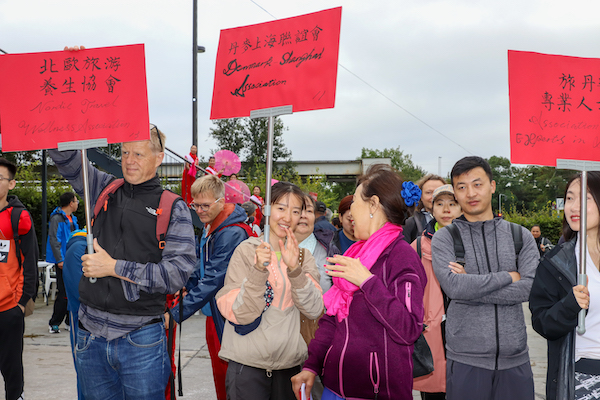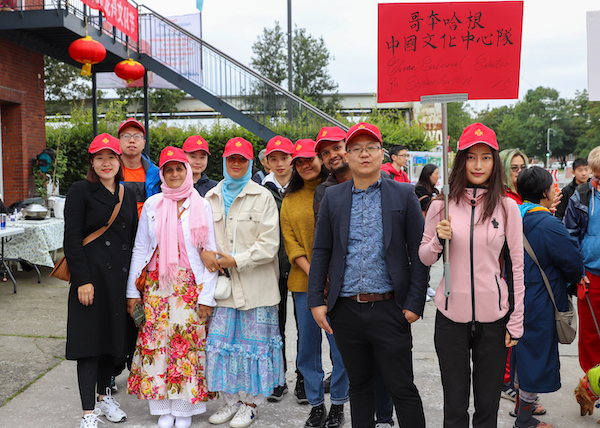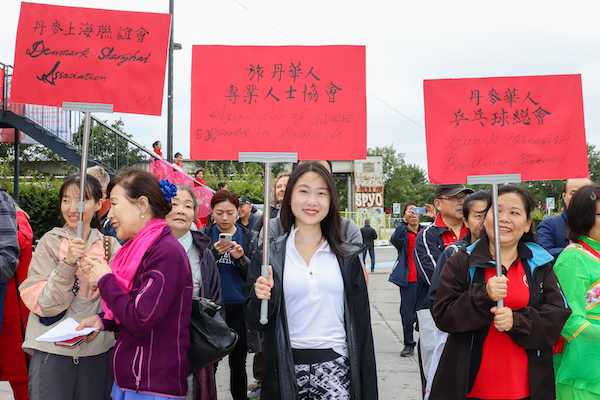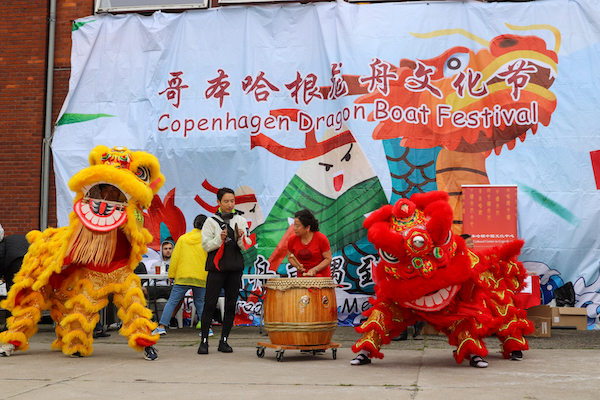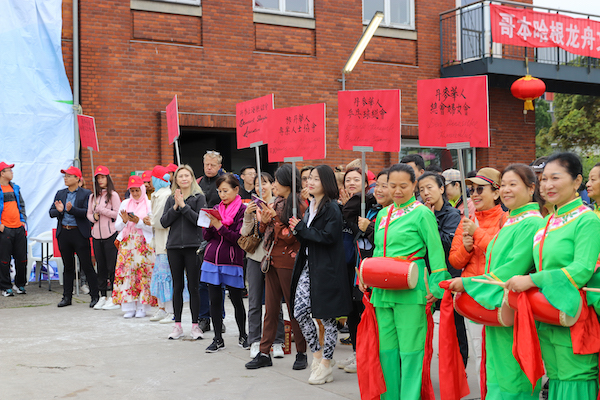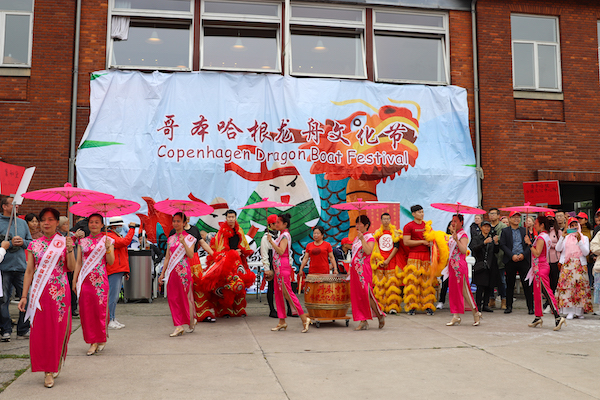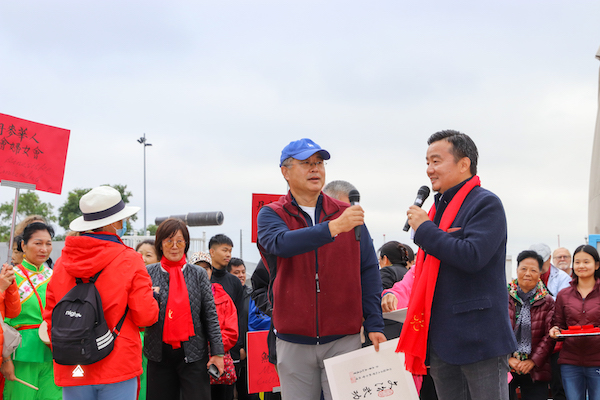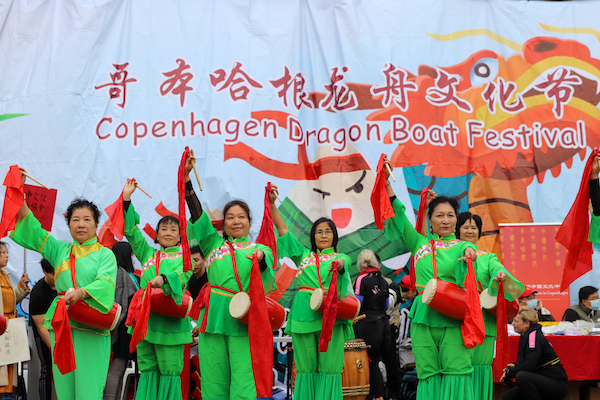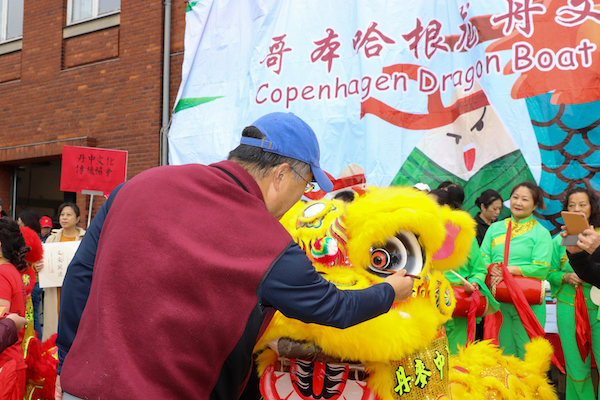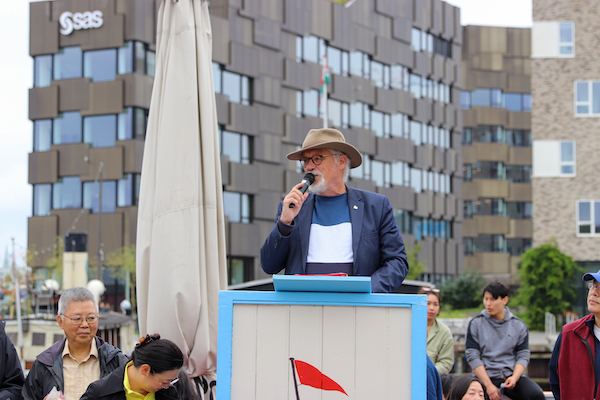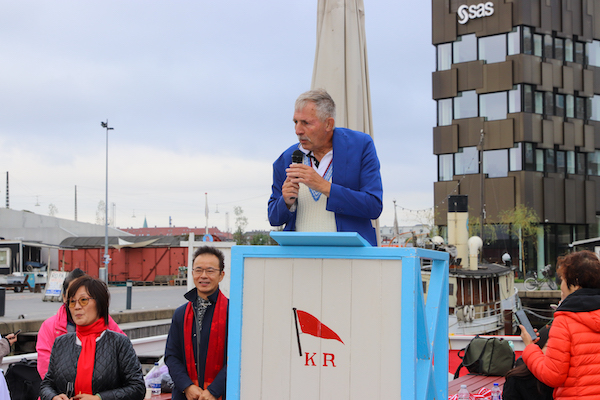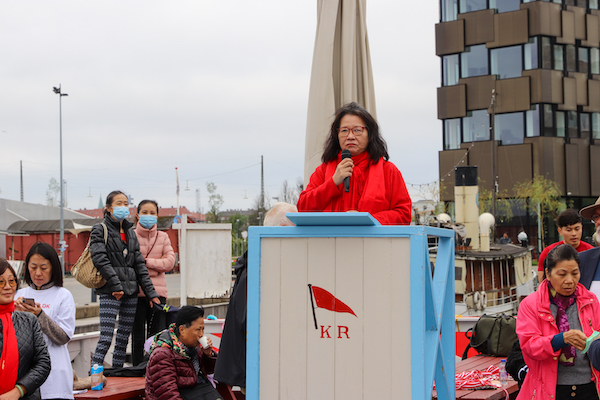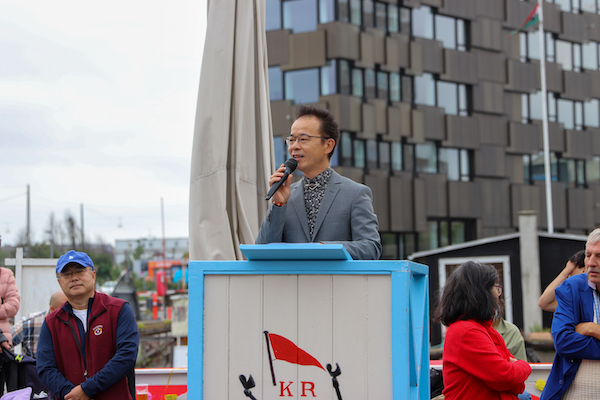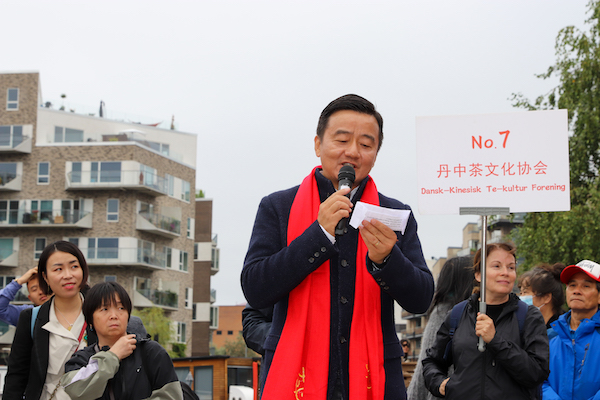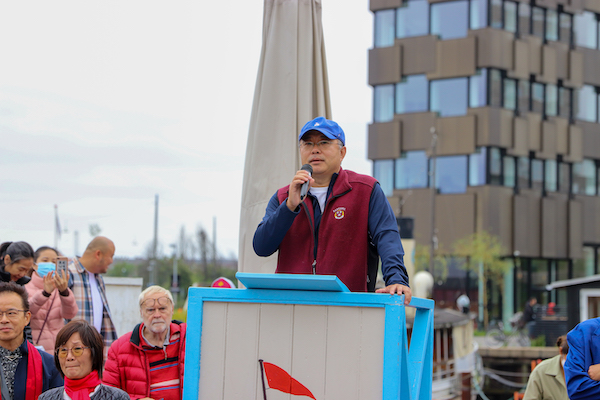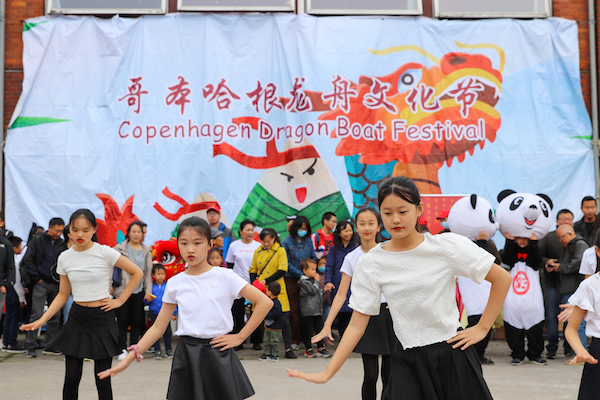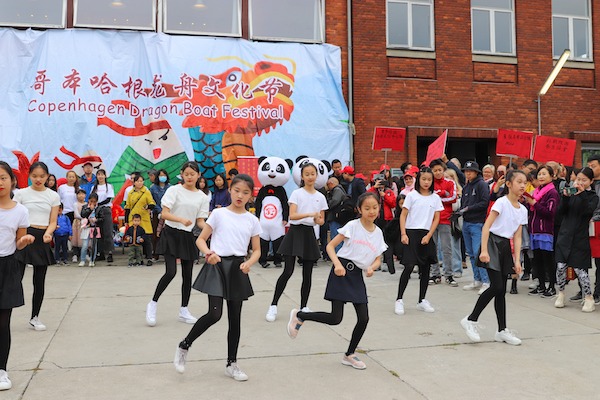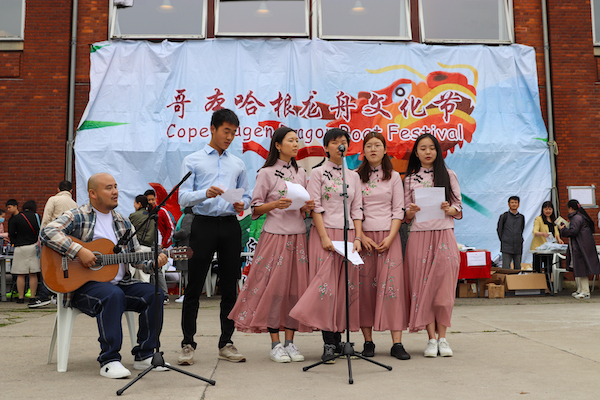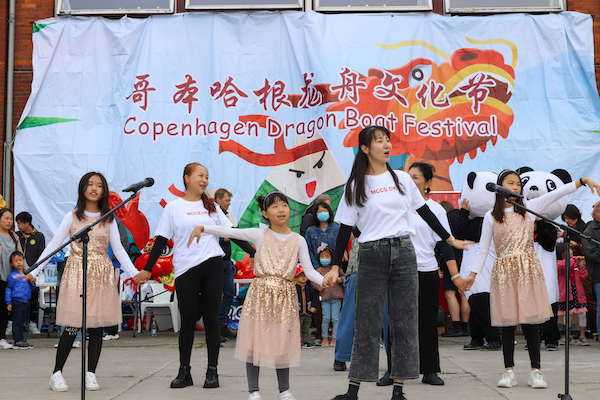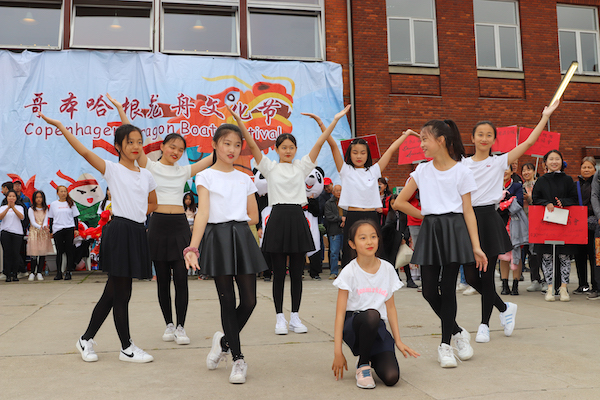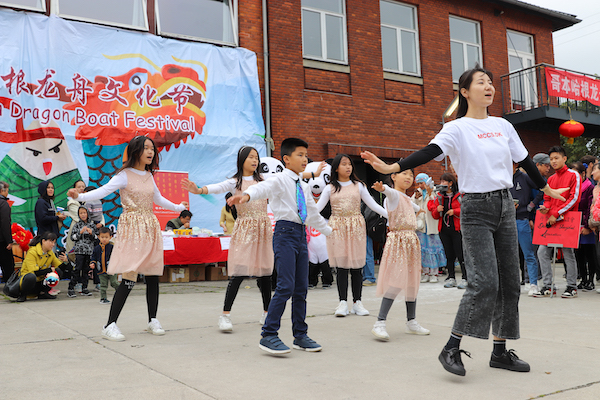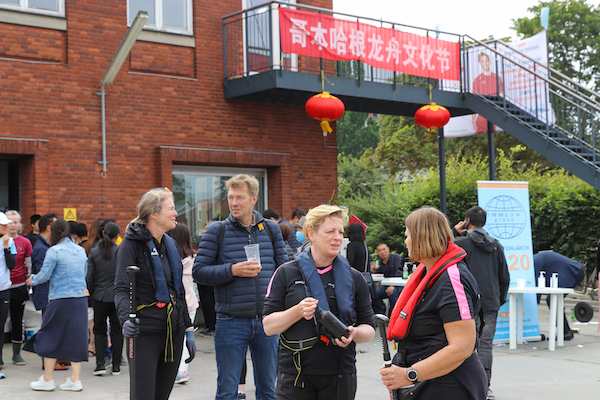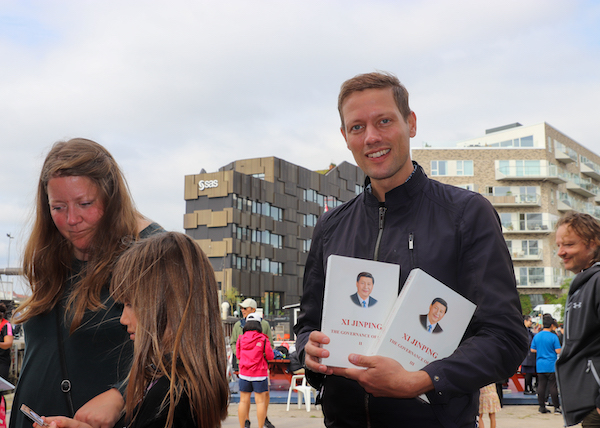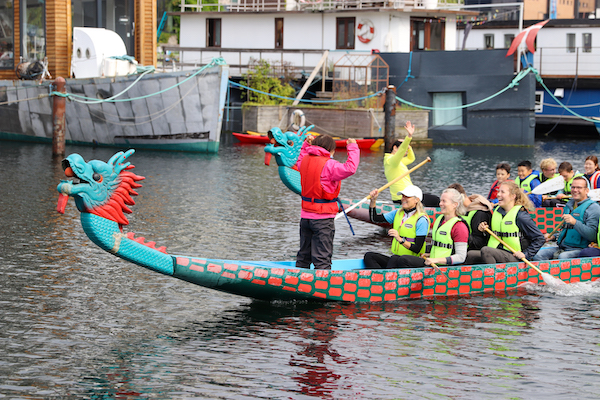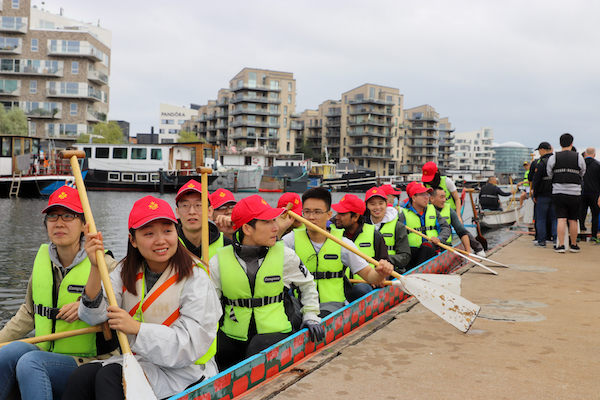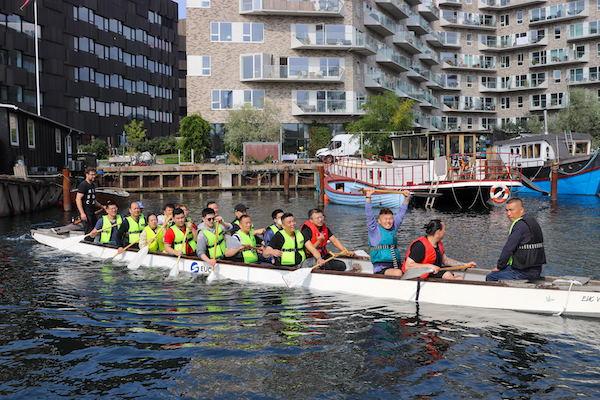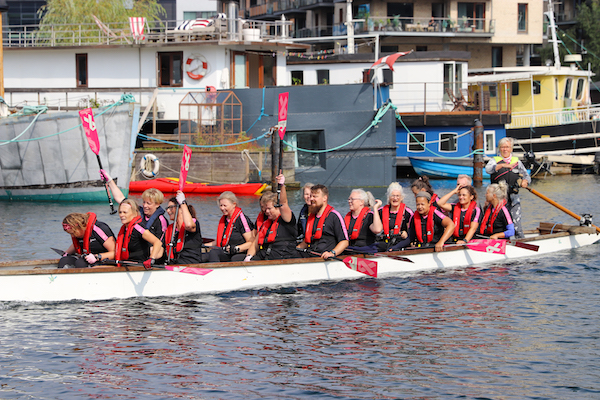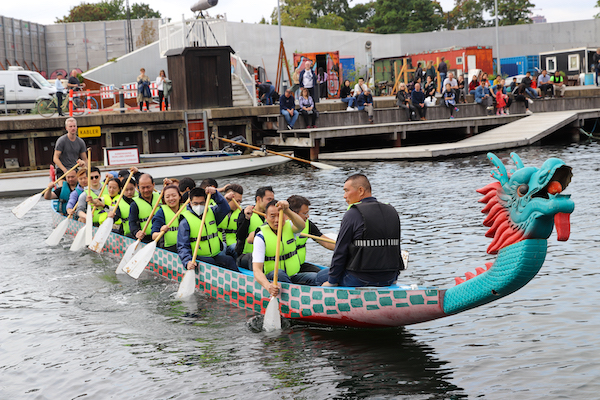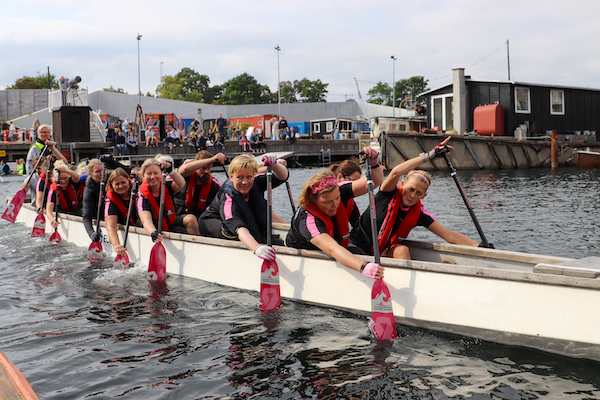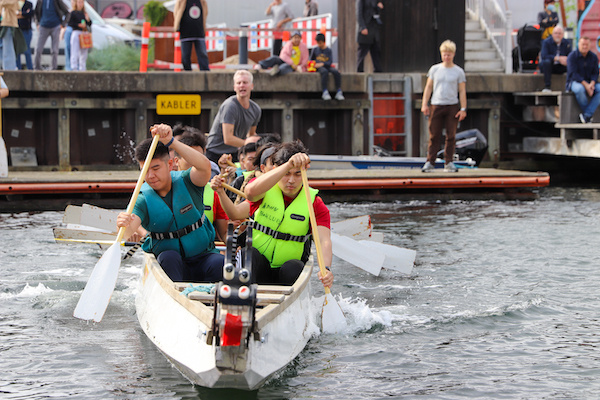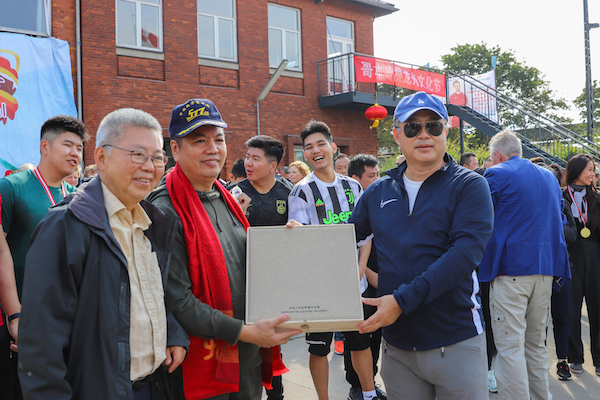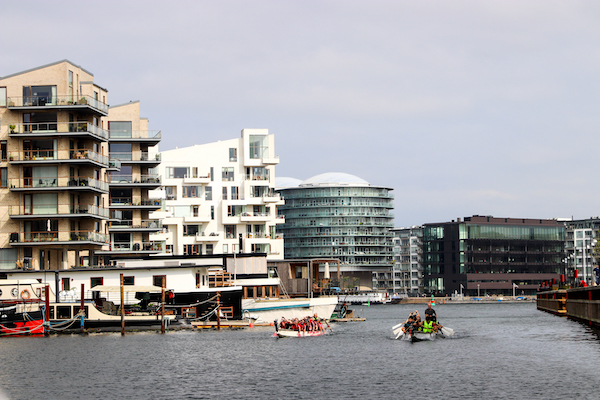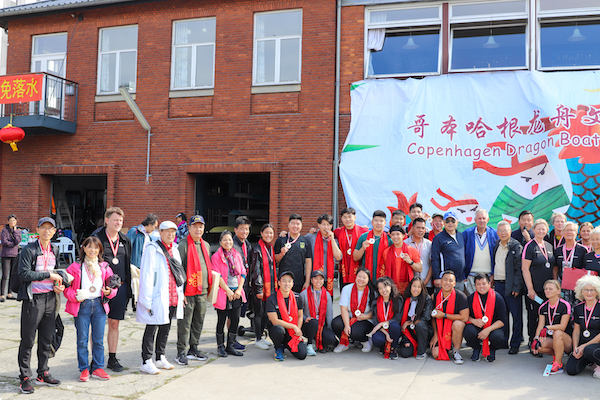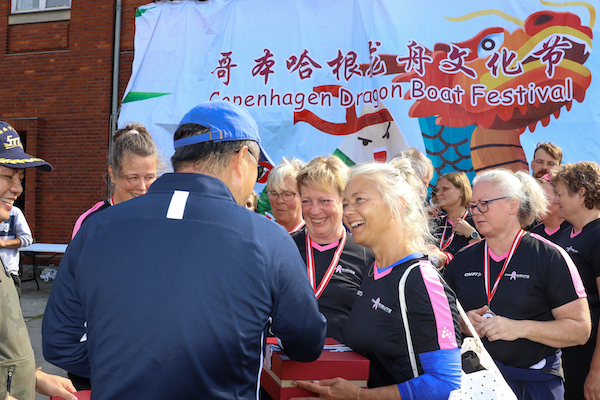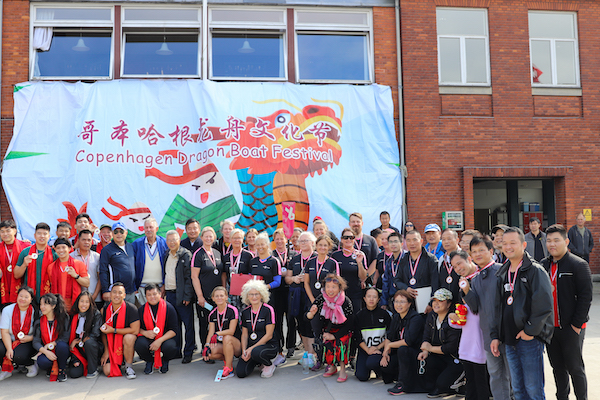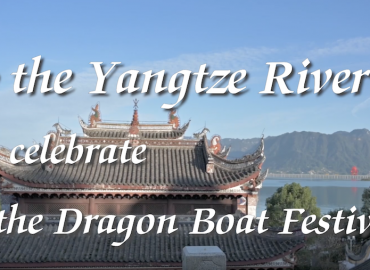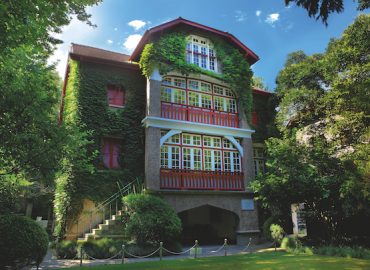On August 29, “The 4th Copenhagen Mid-Autumn Dragon Boat Culture Festival” was successfully held at the Copenhagen Rowing Club. The event was co-organized by the China Cultural Center in Copenhagen, the Dragon Boat Festival Organizing Committee and the Copenhagen Rowing Club. The event was held to celebrate the 72nd anniversary of the founding of the People’s Republic of China and to support 2022 Beijing Winter Olympics.
The Dragon Boat Racing is the most important event of the Dragon Boat Festival, which is a traditional Chinese festival and has been listed as a national intangible heritage. According to one of the legends, when the patriotic poet Qu Yuan (340-278 BC) committed suicide by drowning himself in the river, many people rushed to rescue him by rowing in a boat. Since then, the people have followed similar practices to commemorate this patriotic poet Qu Yuan. Gradually, the rowing boats developed into dragon boat racing which will be held every year during the Dragon Boat Festival. Therefore, the dragon boat racing is not only a folk traditional water sports and entertainment project in which people competes, but it also reflects the patriotism and collectivism. The Dragon Boat Racing has been circulating in China for more than two thousand years. It is increasingly accepted by countries all over the world, and the number of people participating in the dragon boat sports is still increasing. It has become a very popular carrier for overseas promotion of Chinese culture, and it plays a unique role in enhancing cross-cultural exchanges and friendship among people of all countries.
This year of Dragon Boat Racing at Copenhagen was the largest ever. It has attracted more than 18 teams to participate. There were a large number of local Chinese and young people, Danish Dragon Abreast, a female team formed by Danish people who have suffered from cancer and have regained their health and confidence through the exercise and other international people from all walks of life; teachers, patients, students and so on. Although everyone has different occupations and is of different ages, they share the same interest for the Dragon Boat Racing.
The local Chinese art troupe and the art troupe of the Chinese school performed singing and dancing and giant panda puppet performances during the opening ceremony. The shows were unusually brilliant with a lively atmosphere. Zhang Li, director of the China Cultural Center, Finn Andersen, chairman of the Dragon Boat Festival Organizing Committee, Niels Holmquist, chairman of the Copenhagen Rowing Club, and Flemming Ytzen, editor-in-chief of “Politiken”, delivered speeches on behalf of the sponsor and co-organizers.
Four brand new Chinese dragon boats shuttled back and forth in the river, and the two sides of the strait were full of cheering. The participants were full of energy, pulling back and forth in their oars and struggling forward. The cheerful and enthusiastic scene attracted many Danish residents near the port to stand on their balconies and cheer for the game. When they were almost to the finish line, the participants used all their strength. “Yes, victory!”- it was clear to see the joy in their faces. The race lasted for more than four hours, and the participants demonstrated their team spirit and spirit of unity, friendship and collectivism.
//DANISH
Dragebådsfestival Fejres For Fjerde Gang I København
Den 29. august blev den fjerde “Måne- og Dragebåds kulturfestival i København” afholdt i Københavns Roklub med stor succes. Arrangementet var organiseret af Det Kinesiske Kulturcenter i København, Dragebådsfestivals Organisationskomite og Københavns Roklub. Arrangementet blev afholdt med det formål at fejre 72-årsdagen for grundlæggelsen af Folkerepublikken Kina og for at støtte Vinter-OL 2022 i Beijing.
Dragebådsrace er den vigtigste begivenhed i Dragebådsfestival, som er en traditionel kinesisk festival og er blevet anerkendt som en national immateriel arv. Ifølge en af legenderne siges det, at da den patriotiske digter Qu Yuan (340-278 f.Kr.) begik selvmord ved at drukne sig selv i floden, skyndte mange mennesker sig i robåde for at redde ham. Siden da har folket fulgt lignende metoder for at mindes denne patriotiske digter Qu Yuan. Efterhånden udviklede robådene sig til dragebådsrace, der hvert år afholdes under Dragebådsfestivalen. Derfor er dragebådsracen ikke kun et folkeligt traditionelt vandsports- og underholdningsprojekt, hvor folk konkurrencer, men det afspejler også patriotisme og kollektivisme. Dragebådsracen har cirkuleret i Kina i mere end to tusinde år. Den accepteres i stigende grad af lande over hele verden, og antallet af folk, der deltager i dragebådsporten, stiger stadig. Den er blevet en meget populær bærer til at fremme kinesisk kultur oversøisk, og det spiller en unik rolle i at styrke tværkulturel udveksling og venskab mellem folk i alle lande.
Dette års dragebådsrace i København var det største nogensinde. Den har tiltrukket mere end 18 hold til at deltage. Der var et stort antal lokale kinesere samt unge, Danish Dragon Abreast, et kvindeligt team dannet af danskere, der havde lidt af kræft og har genvundet deres helbred og selvtillid gennem øvelser og andre internationale mennesker fra alle samfundslag; lærere, patienter, studerende og så videre. Selvom alle har forskellige erhverv og er i forskellige aldre, deler de den samme interesse, nemlig dragebådsracen.
De lokale kinesiske trupper og den kinesiske skoles trup fremførte sange og dans under åbningsceremonien. Der var desuden også kæmpe panda-dukkeforestillinger. Showene var usædvanligt strålende med en livlig atmosfære. Zhang Li, direktør for Det Kinesiske Kulturcenter, Finn Andersen, formand for Dragebådsfestivals Organisationskomite, Niels Holmquist, formand for Københavns Roklub, og Flemming Ytzen, chefredaktør for Politiken, holdt taler på vegne af sponsorer og medarrangører.
Fire helt nye kinesiske dragebåde sejlede frem og tilbage i floden, og sundets to sider var fulde af jubel. Deltagerne var fulde af energi. De trak frem og tilbage i deres årer og kæmpede fremad. Den muntre og entusiastiske scene tiltrak mange danske beboere i nærheden af havnen til at stå på deres altaner og juble for spillet. Da de var næsten i mål, brugte deltagerne al deres kræfter. “Ja, vi vandt!”- det var tydeligt at se glæden i deres ansigter. Kapsejladsen varede i mere end fire timer, og de deltagende spillere demonstrerede deres følelse af holdånd og ånden af enhed, venskab og kollektivisme.

